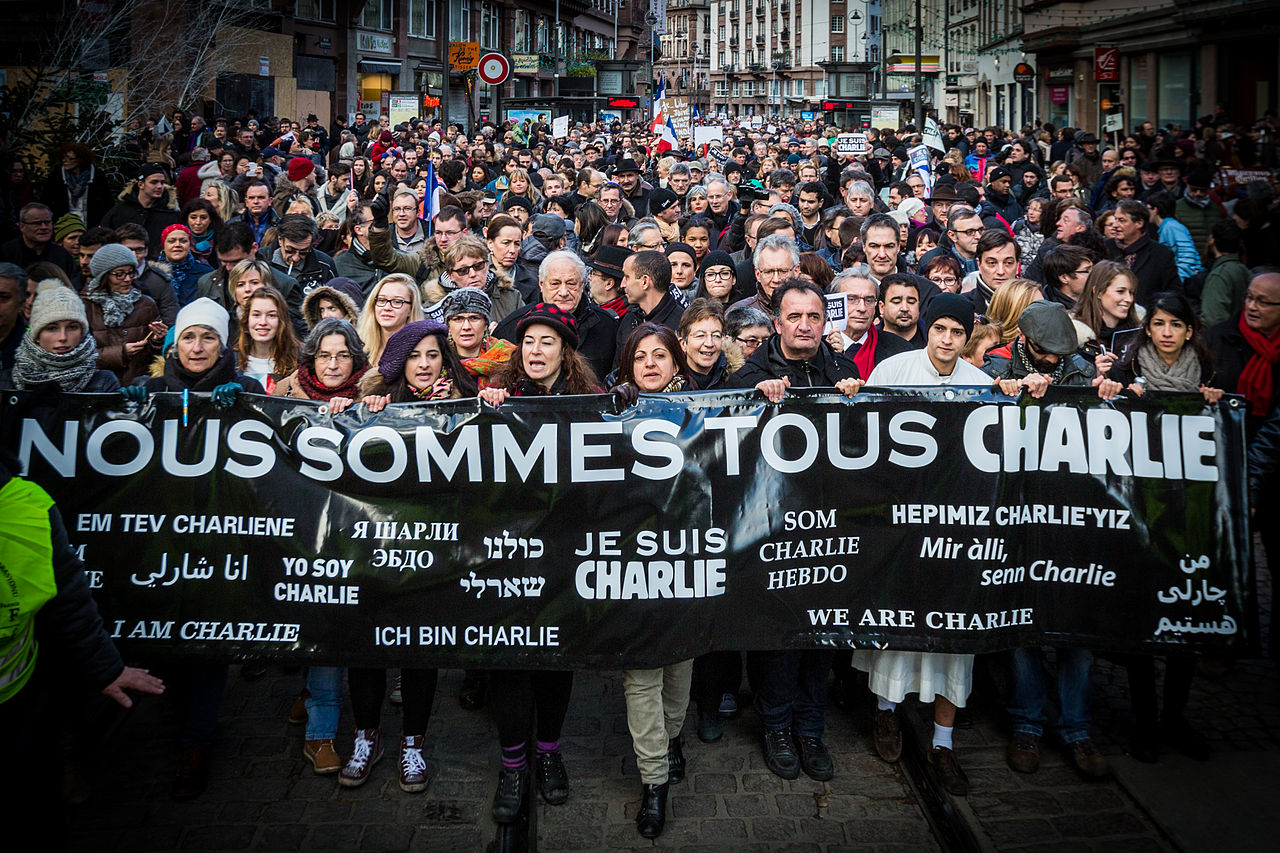Despite the fervent protests in response to the appalling massacre at the offices of Charlie Hebdo two years ago, little has changed for journalists on the ground. The brutal murder of Jamal Khashoggi was followed by the imprisonment of two Reuter journalists in Myanmar in December after reporting on the killings of Rohingya men. Whilst freedom of the press withers, violence and repression against the media grows. According to the Constructive Journalism Project (CJP), the ‘war on media’ has not only lost ‘truth’ but also seen 34 ‘truth-tellers’ murdered in 2018 with many more kidnapped or their disappearances unaccounted for. Journalism is starting to look a lot more like a Bond film than an episode of ‘Press.’
Taking on big names and powerful interests has always been risky, but the information monopoly that broadcasters exercised in the past served as their protection. A shift in the relationship between the media and its subjects makes journalists today dispensable. With mobile phones at arm’s length, arguing that ‘no one else will be able to tell your story’ has little effect. Al-Qaeda used to depend on sporadic interviews with western journalists such as Jon Miller and Peter Bergen to torment American hearts but today the so-called Islamic State slickly uses social media as its main terror outlet. Journalists are no longer the interviewers but props in bloody and horrific videos. The war against reporters has no single cause but government impunity (despite the existence of some sanctions) does little to fight in its defence. In fact, the White House seems to spend a lot of time fuelling the fire, attacking news organisations and spreading misinformation.
Others are emulating Trump’s behaviour, embracing ‘fake news’ as a rationale to tighten their grip on the press. The presidencies of Hugo Chávez and Nicolas Maduro in Venezuela have atrophied the idea of a free press, Putin has constrained freedoms and Hungary’s Orban and his friends have angrily seized control of 500 media titles. Even the UK introduced a ‘snooper’s charter’ legalising hacking by security services to identify anonymous sources. Previously they were valued and respected, but now journalists are losing their power. Correspondents are having to take ever greater risks to deliver the news accurately and “live.”
With media becoming more diverse, radio, print papers and the evening news are no longer the only way to reach mass audiences. Even governments routinely use social media and other technologies to propagate information directly to the public. Technology democratises and amplifies journalism, making everyone a witness. But the media is under attack. Journalists are disliked, they deliver the bad news, reveal hypocrisies and criticise ‘facts’. However, this is their job. True investigative reporters give a voice to those lost in conflict-stricken, poor and oppressed areas. In times of alternative information, fake news and political turmoil, we need them more than ever. And the public has a role too. We must accept responsibility for the information we consume, put our trust back into the (right) newspapers but still continue to ask ourselves where the news comes from. In the age of information, remember to get the right kind of it.
Image Claude Truong-Ngoc via Wikimedia Commons

